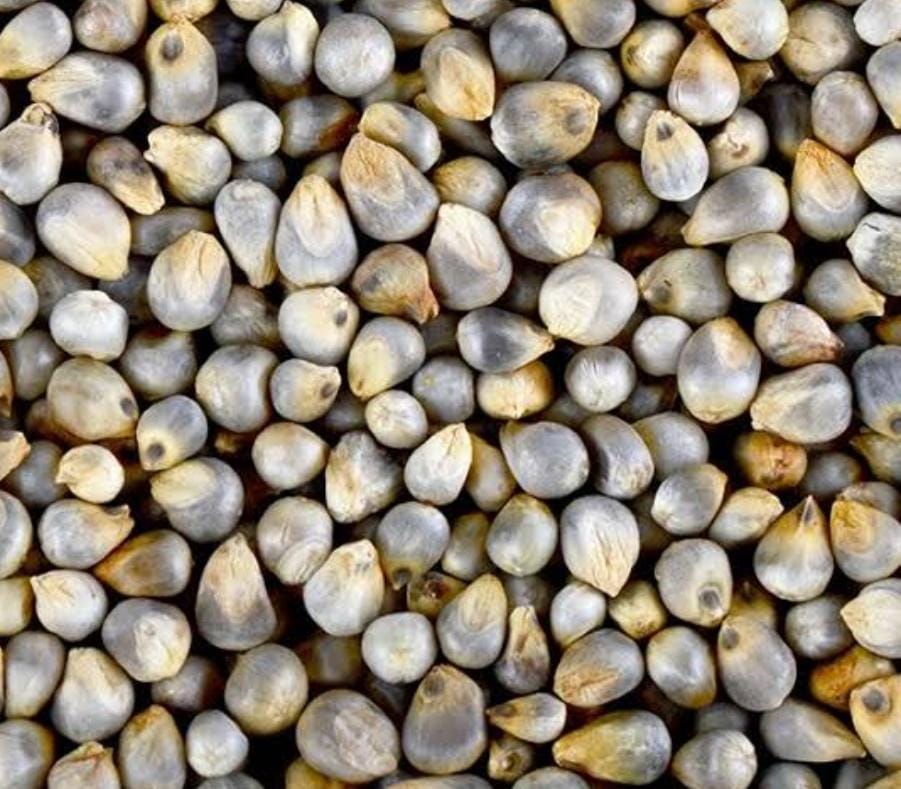Bajra is rich in dietary fiber promotes digestion, prevents constipation, and supports the growth of beneficial gut bacteria, while makka is a substantial source of carbohydrates.
In the realm of dietary choices, the grain known as Bajra emerges as a formidable contender, boasting a plethora of nutritional advantages. Its gluten-free nature renders it an appealing option for those with dietary sensitivities, while its robust dietary fiber content serves as a catalyst for optimal digestion, effectively thwarting the onset of digestive ailments such as constipation. Additionally, Bajra’s ability to nurture the proliferation of beneficial gut flora underscores its significance in maintaining a balanced and thriving gut microbiome.
Conversely, Makka, a staple crop renowned for its widespread cultivation, stands as a substantial reservoir of carbohydrates, furnishing the body with indispensable energy stores essential for sustaining daily activities. According to insights provided by Divya Gopal, a Consultant Dietitian & Nutritionist affiliated with Motherhood Hospitals in Banashankari, Bangalore, the onset of winter ushers in a natural inclination towards heartier, more nourishing fare. Amidst the myriad of grain varieties at our disposal, Bajra and Makka unequivocally emerge as the cream of the crop.
Furthermore, Shammi Agarwal, Director of Pansari Group, emphasizes the imperative of integrating health-conscious alternatives into one’s dietary regimen during the winter season. Agarwal contends that incorporating Bajra and Makka into one’s diet not only yields substantial health benefits but also tantalizes the taste buds with their delectable offerings.
Unveiling the merits of Bajra, Dr. Rohini Patil, a distinguished MBBS graduate and Nutritionist, sheds light on its multifaceted health benefits. Patil underscores the pivotal role played by Bajra’s dietary fiber in fostering the synthesis of anti-inflammatory short-chain fatty acids within the colon, thereby mitigating inflammatory processes. Moreover, the antioxidant prowess of Bajra, particularly its abundance of phenolic compounds, serves as a shield against oxidative stress and inflammation, culprits implicated in a myriad of chronic ailments spanning from diabetes to cardiovascular disorders.
Intriguingly, Bajra’s mineral composition, comprising essential elements such as iron, magnesium, and phosphorus, assumes paramount importance in bolstering vital bodily functions including blood formation, muscular contractions, and skeletal integrity. Its commendably low glycemic index confers a slew of metabolic advantages, chiefly in the management of diabetes by precluding abrupt surges in blood glucose levels. Furthermore, Bajra’s thermogenic properties render it a quintessential ally in combatting the frigid temperatures synonymous with the winter season, thereby imbuing the body with warmth and vitality.
Turning attention to the health quotient of Makka, Dietician Divya Gopal underscores its nutritional prowess, enumerating its dietary fiber-rich composition which serves as a boon for digestive health, ensuring regularity in bowel movements and alleviating common gastrointestinal complaints such as constipation. Additionally, Makka’s nutrient density assumes significance in mitigating the risk of nutrient deficiencies prevalent during the winter months, thereby emerging as an indispensable dietary staple.
Moreover, Makka’s fiber content plays a pivotal role in nurturing a flourishing gut microbiome, thereby fortifying the body’s natural defenses and bolstering immune function. Speaking to the synergistic benefits of both Bajra and Makka, Shammi Agarwal underscores their collective contributions towards optimizing blood circulation, fortifying skeletal health, and augmenting immune resilience. Furthermore, their rich reservoirs of complex carbohydrates ensure a sustained and steady release of energy, thereby engendering a sense of satiety and supporting overall health and vitality.




